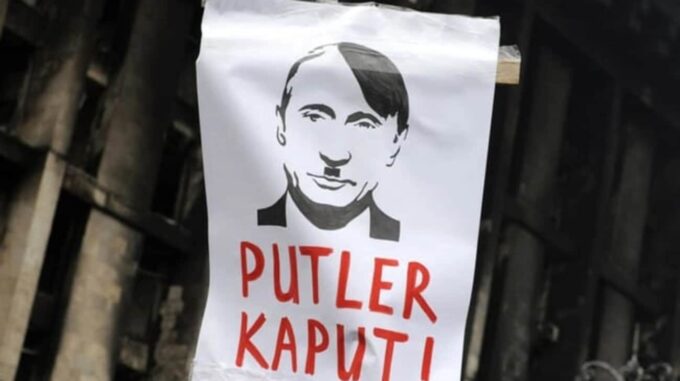The Russian court has banned the dissemination of memes and satirical images comparing Vladimir Putin to Adolf Hitler

In Russia, a campaign of censorship and restrictions on freedom of speech is ongoing, reaching new heights in the context of combating irony and criticism of the authorities. According to a decision by the Kirovsky District Court of Omsk, the dissemination of 12 internet resources containing satirical content—such as memes, photomontages, and images from protest actions—has been officially prohibited. These materials included comparisons of President Vladimir Putin with the Nazi dictator Adolf Hitler. According to the source — the publication "Verstka" — the banned content included not only photomontages with "Hitler-esque" mustaches and hairstyles but also scenes from the popular 2008 Russian comedy "Hitler Kaput!", as well as photos from protest rallies where participants held signs with messages like "Putler — kaput" or "Putin — a lenient step towards humiliating Russia." The list also included images from well-known blogger Ilya Varlamov, notably photographs of a woman holding a poster with the inscription "Putler, drink poison before being served lead," which, in the opinion of Russian judges, allegedly has a destructive nature. Furthermore, the court decision also banned the distribution of a page on the popular website "Stihi.ru," where an image of Putin holding a revolver to his temple with the caption "The court has begun the trial on the merits. The case has declared itself innocent" was published — a way to highlight the censorship restrictions imposed on free expression of opinions. As "Verstka" reports, the initiator of the lawsuit was the Prosecutor's Office of the Omsk Region. In its official ruling, the court refers to the claim that spreading the mentioned materials allegedly "negatively affects the interests of society and the state," and may also "incite terrorist activities" and "provoke crimes." Thus, the court justifies its decision by stating that images and memes, which compare the federal leader to a Nazi führer, create an atmosphere of hostility and do not contribute to the stable functioning of state institutions. This case once again demonstrates how the state's role in controlling the internet space and the information sphere has increased, aiming to block any forms of social criticism deemed unnecessary and dangerous to the regime. At the same time, such court decisions provoke lively discussions among human rights activists and journalists about the limits of freedom of speech and new forms of protest expression under modern authoritarian conditions. This topic has gained particular relevance amid the rising levels of censorship and repression of internet users in Russia, where any satirical expression of mockery or criticism of the authorities increasingly triggers court rulings that restrict access to information and censor public discourse.

